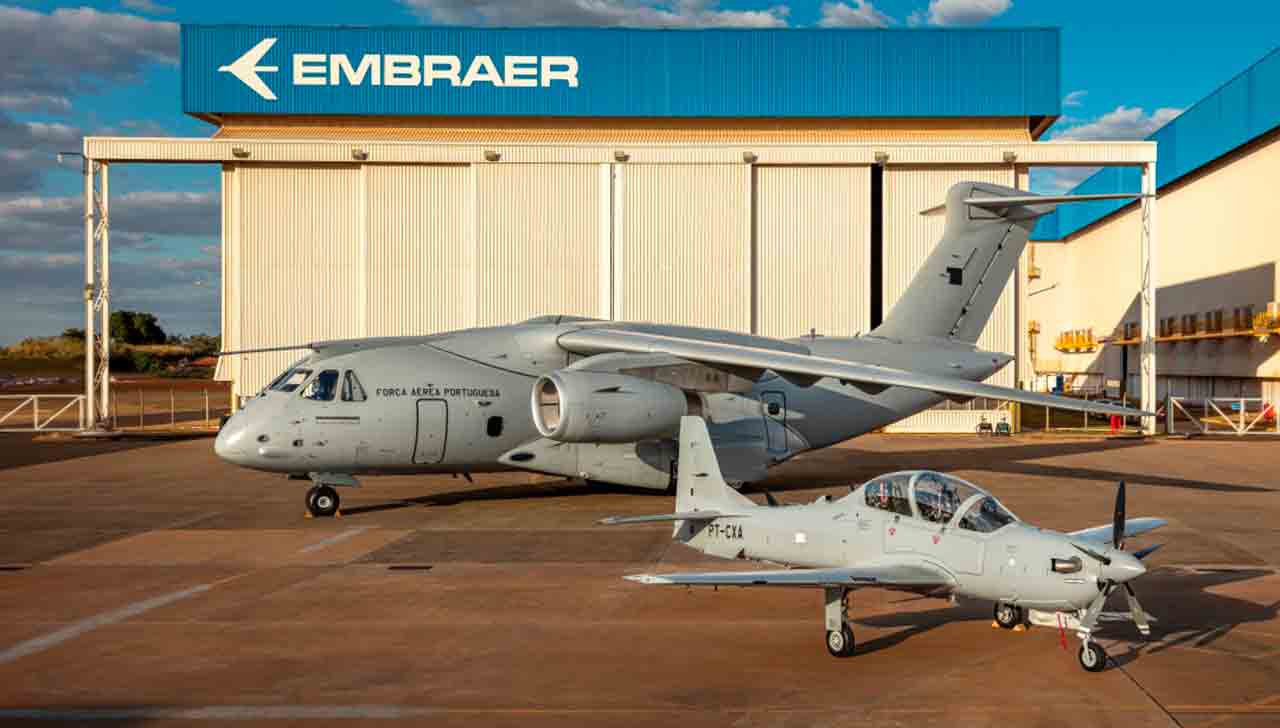Major Milestones in Brazil and Portugal’s Defense Collaboration
On July 17, 2025, Embraer and the Portuguese Air Force (FAP) marked two significant achievements in their defense programs. The event highlighted the delivery of the third KC-390 Millennium aircraft to the FAP and the initiation of the flight test campaign for the A-29N Super Tucano. Notably, a historic joint flight between the two aircraft took place, symbolizing the strong partnership between the two nations.
The third KC-390 unit is part of a contract signed between Embraer and the Portuguese government, which includes the acquisition of six aircraft with an option for ten more to be purchased by allied and NATO member countries. The A-29N, ordered in 2024, will consist of 12 units specifically designed to meet the operational needs of the Atlantic alliance, making Portugal the launch customer for this new variant.
Major-General João Nogueira, Director of the KC-390 Program at FAP, expressed his satisfaction with the progress of both programs. He stated that the delivery of the third KC-390 expands the operational capacity of the Portuguese Air Force and consolidates their experience with the aircraft. Additionally, the start of the A-29N test campaign puts the FAP on the right track to obtain a distinctive platform tailored to their requirements.
Tolong support kita ya,
Cukup klik ini aja: https://indonesiacrowd.com/support-bonus/
Key Features of the KC-390 Millennium
The KC-390 Millennium stands out with its impressive 26-ton payload capacity, surpassing other medium military transport aircraft in speed (470 knots) and range. It is suitable for a wide range of missions, including cargo and troop transport, airdrop, medical evacuation, search and rescue, firefighting, and humanitarian operations. The aircraft can operate from unpaved and temporary runways and can be configured for aerial refueling — both as a tanker and a receiver.
The KC-390 fully meets NATO standards and requirements. In addition to Portugal, several European and NATO allied countries, such as Hungary, the Netherlands, Austria, Czech Republic, Sweden, Slovakia, and Lithuania, have already selected the KC-390 to modernize their fleets. To date, 11 nations, including Brazil and South Korea, have chosen the model.
The Versatility of the A-29 Super Tucano
The A-29 Super Tucano is a versatile and combat-proven aircraft capable of performing various missions, including close air support, aerial patrol, special operations, border surveillance, armed reconnaissance, escort, and training at all levels — from basic to advanced, including transition to air superiority fighters.
The A-29N variant will feature advanced avionics, NATO-specific communication systems, and other undisclosed capabilities developed to meet the alliance’s operational needs. This upgrade ensures that the aircraft remains relevant and effective in modern warfare scenarios.
Currently, the global A-29 fleet has surpassed 600,000 flight hours, with more than 290 units ordered by 22 air forces around the world. This impressive record highlights the reliability and effectiveness of the A-29 Super Tucano in various operational environments.
Broader Implications for International Defense Cooperation
The collaboration between Embraer and the Portuguese Air Force reflects a growing trend in international defense cooperation. As countries seek to modernize their military capabilities, partnerships like these play a crucial role in ensuring interoperability and enhancing collective security.
With the successful delivery of the third KC-390 and the commencement of the A-29N test campaign, the Portuguese Air Force is well-positioned to meet its strategic objectives. These milestones not only strengthen national defense but also contribute to regional stability and security.
As the global landscape continues to evolve, the importance of robust defense partnerships cannot be overstated. The ongoing efforts between Embraer and the FAP serve as a testament to the power of collaboration in addressing contemporary security challenges.







